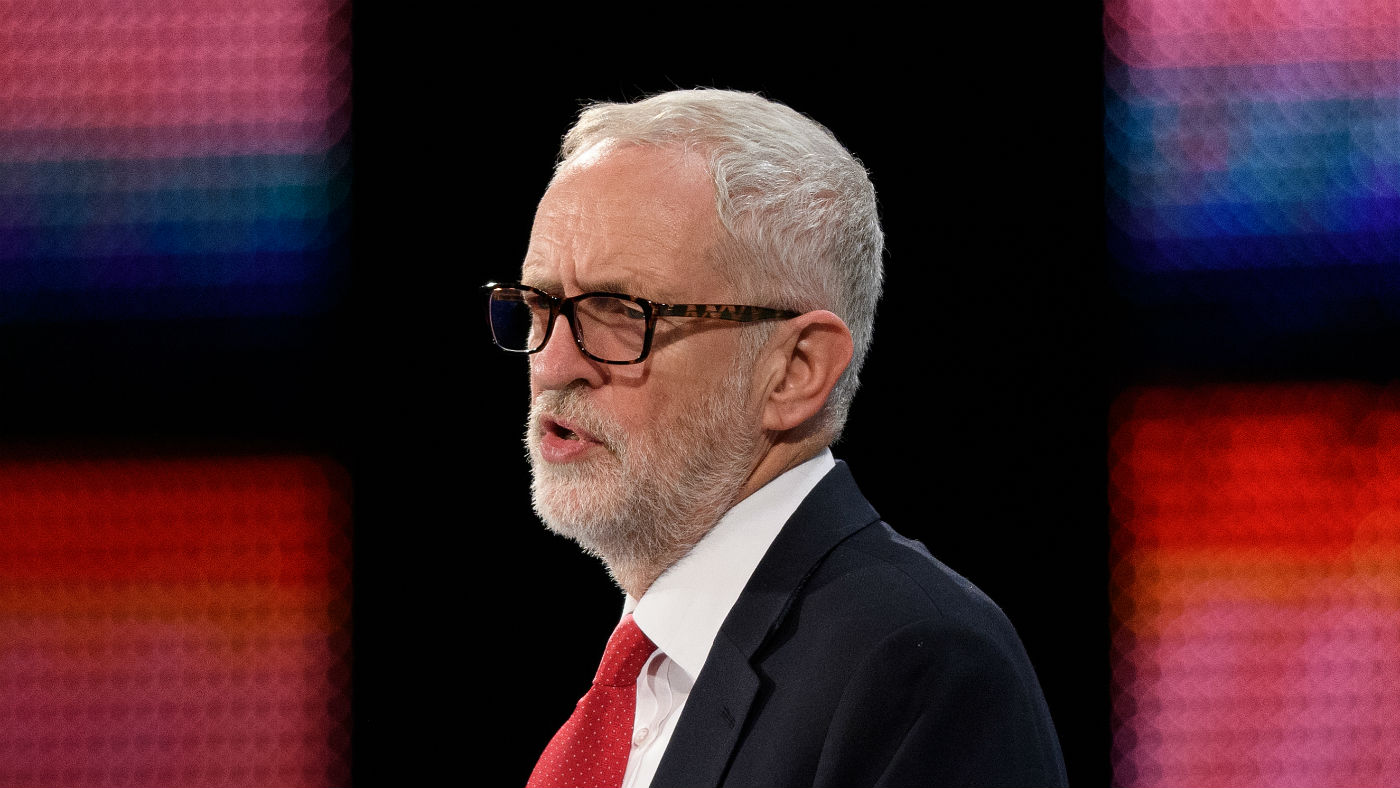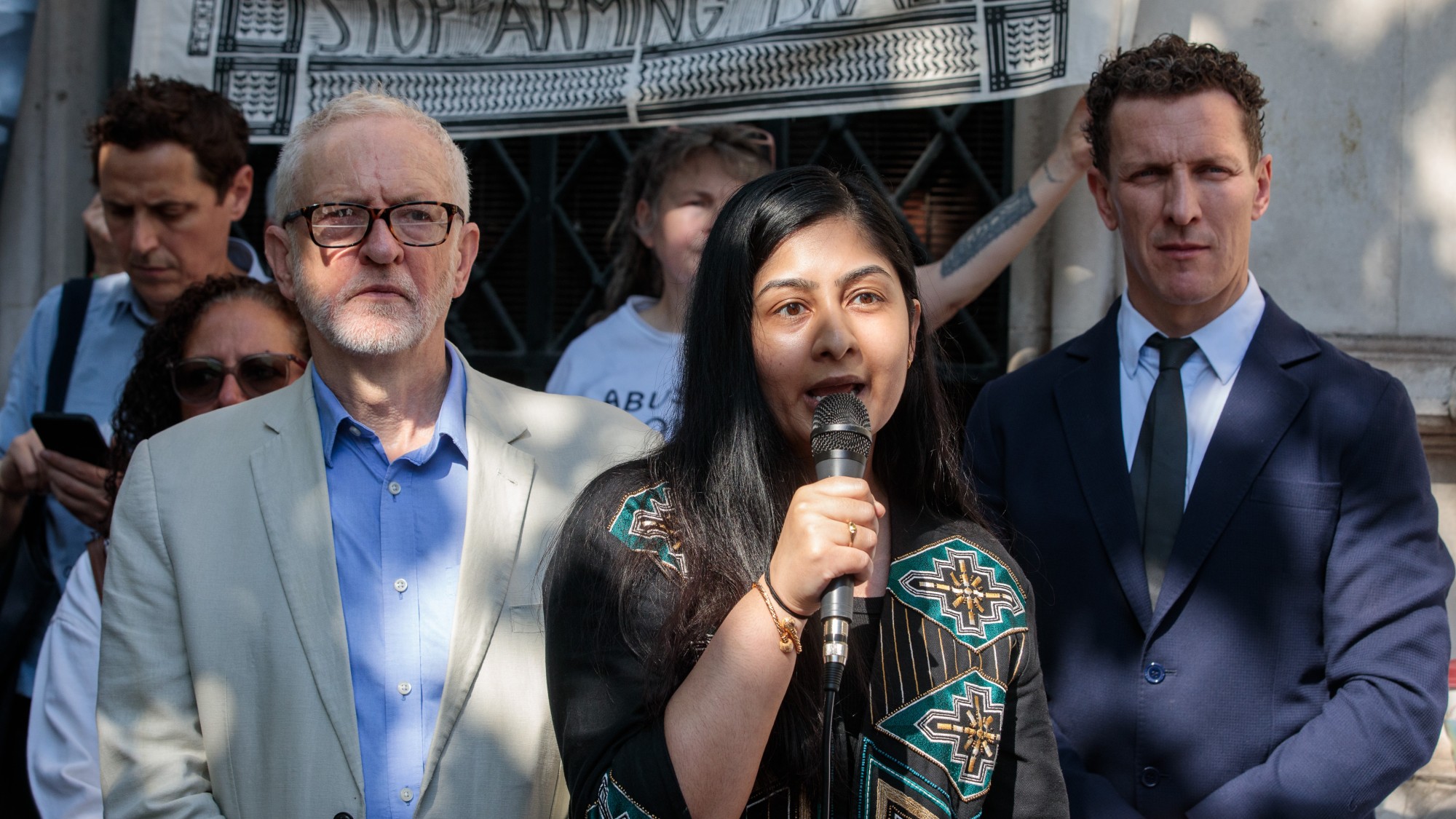Why has Labour not called a no-confidence vote?
Jeremy Corbyn accused of cowardice by other opposition parties, but is he just being clever?

A free daily email with the biggest news stories of the day – and the best features from TheWeek.com
You are now subscribed
Your newsletter sign-up was successful
A furious row has broken out among opposition parties in the House of Commons after Labour refused to table a motion of no confidence in Theresa May, despite the chaos engulfing her government.
Amid a growing constitutional crisis created by the prime minister’s decision to withdraw her crucial Brexit withdrawal bill, the SNP, Lib Dems, Plaid Cymru and the Greens have all called on the Labour leader to table a motion of no confidence in the Commons.
Addressing MPs yesterday afternoon, Corbyn said he does intend to bring such a motion, but would not say exactly when.
The Week
Escape your echo chamber. Get the facts behind the news, plus analysis from multiple perspectives.

Sign up for The Week's Free Newsletters
From our morning news briefing to a weekly Good News Newsletter, get the best of The Week delivered directly to your inbox.
From our morning news briefing to a weekly Good News Newsletter, get the best of The Week delivered directly to your inbox.
“We have no confidence in this Government. We need to do the appropriate thing at the appropriate time to have a motion of no confidence in order to get rid of this Government,” he said.
In a bid to force the issue, the SNP’s leader in Westminster, Ian Blackford, issued the Labour leader with an ultimatum, saying he must act before the end of the day on Tuesday or other parties would be forced to intervene.
Speaking at a press conference in London, Blackford said Britain was facing a “constitutional crisis unparalleled in modern times” and suggested that his party, the Greens, the Liberal Democrat’s and Plaid Cymru could attempt to force a vote in the government if Labour won’t.
“The row over tactics appears to be intensifying”, with Labour pulling out of a planned meeting between Corbyn and Blackford over what it sees as SNP game playing, The Scotsman reported.
A free daily email with the biggest news stories of the day – and the best features from TheWeek.com
The shadow chancellor, John McDonnell, accused the SNP of pushing for a no-confidence vote now to wreck Labour’s chances of securing a general election, because it was “terrified” of losing seats to Labour in Scotland.
“Labour is keen to trigger an early general election but the party has so far held back from trying to topple the government, saying it will put forward a motion when it is most likely to be successful,” reports The Independent.
McDonnell said Labour would table a confidence motion “when we can win it”, but denied that meant waiting until after a defeat of the prime minister’s deal, in a vote that might not happen until 21 January.
“We’ll make a judgement when we’re convinced about it. Never ask a question you don’t know the answer to,” he said.
The Labour frontbench’s reticence has been interpreted as cowardice by some Remain MPs who think it could precipitate a second EU referendum.
Echoing comments made on BBC Newsnight on Monday, Tory MP Tory Anna Soubry said a Labour-led no-confidence vote would act as a “paving way” to a People’s Vote – even though she said she would be voting “in support of my government”.
Seeking to tie in a confidence vote with support for a second referendum, Scottish First Minister Nicola Sturgeon said the only thing blocking a parliamentary majority for a second Brexit referendum was the fact that “Labour is not yet behind that”.
“In order to put that to the test to get to that point, we need to get Labour off of the fence that it is determinedly sitting on right now and backing a clear way forward.”
The raw truth is that Corbyn is holding off on calling a no-confidence vote in the government for now, despite pressure from backbench MPs, “because the numbers are just not yet there to win the day”, says Politico.
Even with the support of every Labour, SNP, Lib Dem, Plaid Cymru and Green MP, with no Conservative even hinting at voting against Theresa May and the DUP for the time being staying on side, there is no chance of the government falling.
“It comes down to Labour’s Brexit policy, the fraught compromise hammered out at that party’s conference”, says New Statesman’s new political editor Stephen Bush. This states the party’s position is to first attempt to trigger a new general election so they can renegotiate Brexit and if that fails to support another referendum.
Asked if the People's Vote campaign was setting Corbyn up to fail, given that it was unlikely a confidence vote would pass at this stage, Blackford said it would be a “lever” to force another referendum.
“So what’s really happening here is a bid accelerate the evolution of Labour’s position – for them to have tried for an election and for the second part of the party’s platform, the support for another referendum, to kick into gear,” says Bush.
“That’s why people are calling on Corbyn to trigger a confidence vote he cannot win,” he adds.
-
 The Mandelson files: Labour Svengali’s parting gift to Starmer
The Mandelson files: Labour Svengali’s parting gift to StarmerThe Explainer Texts and emails about Mandelson’s appointment as US ambassador could fuel biggest political scandal ‘for a generation’
-
 The high street: Britain’s next political battleground?
The high street: Britain’s next political battleground?In the Spotlight Mass closure of shops and influx of organised crime are fuelling voter anger, and offer an opening for Reform UK
-
 Biggest political break-ups and make-ups of 2025
Biggest political break-ups and make-ups of 2025The Explainer From Trump and Musk to the UK and the EU, Christmas wouldn’t be Christmas without a round-up of the year’s relationship drama
-
 ‘The menu’s other highlights smack of the surreal’
‘The menu’s other highlights smack of the surreal’Instant Opinion Opinion, comment and editorials of the day
-
 Is a Reform-Tory pact becoming more likely?
Is a Reform-Tory pact becoming more likely?Today’s Big Question Nigel Farage’s party is ahead in the polls but still falls well short of a Commons majority, while Conservatives are still losing MPs to Reform
-
 The launch of Your Party: how it could work
The launch of Your Party: how it could workThe Explainer Despite landmark decisions made over the party’s makeup at their first conference, core frustrations are ‘likely to only intensify in the near-future’
-
 Taking the low road: why the SNP is still standing strong
Taking the low road: why the SNP is still standing strongTalking Point Party is on track for a fifth consecutive victory in May’s Holyrood election, despite controversies and plummeting support
-
 Your Party: a Pythonesque shambles
Your Party: a Pythonesque shamblesTalking Point Comical disagreements within Jeremy Corbyn and Zarah Sultana's group highlight their precarious position

